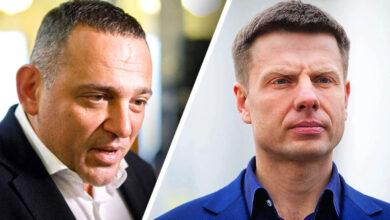Personnel reshuffles in the Cabinet of Ministers continue to worry Europe: what the media are writing about

Large-scale reshuffles in the Cabinet of Ministers of Ukraine shook the country’s political landscape. More than half of the ministries received new heads, which became a signal for the European press. On the one hand, the West understands the need for quick and decisive steps in war conditions. However, the way power in Ukraine is concentrated in the hands of a limited circle of people is being observed with increasing concern. In a country that has been on the defensive against Russian aggression for two and a half years, such trends may raise questions about the balance of power and the future of democracy. In Europe, the question is asked: does this not mean a movement towards excessive centralization of power, which can get out of control?
Jutarnji List – Croatia. The war-induced centralization of power has now been completely completed, the Zagreb Jutarnji list concludes:
“Is this a crisis, as the state media of the Russian Federation hasten to tell us? Under other circumstances, perhaps, one could say so, but in the current case it is true, rather, that after two and a half years of war, we are witnessing the completion of the process of centralization of power in in the hands of President Zelenskyi and his cabinet under the control of the powerful Andriy Yermak, the real “second man of Ukraine”… So, the purpose of the personnel changes in the government is to make the government a kind of continuation of the presidential administration, because the portfolios were distributed to people from the closest circle of the president” .
The Guardian – Great Britain. Zelensky relies on an increasingly narrow circle of associates, – London’s The Guardian states:
“Crises of a national scale bring leaders to the forefront, but perhaps no other leader could electrify the Ukrainian and international public as much as he did. Some concentration of power in wartime is inevitable, but Zelensky seems to be most comfortable governing by surrounding himself a small team, as he already did during his television career. … Leaders under intense pressure tend to rely on proxies and allies, for obvious reasons. But people want to be sure that their country, when faced with a huge existential threat, makes maximum use of the potential of his talents.”
Mladá fronta – Czech Republic. Prague’s Mladá fronta Dnes cannot find an explanation for Dmytro Kuleba’s resignation:
“If he did not have enough energy to produce the weapons the country needs. But if the new chief diplomat does not have his own factories for the production of ammunition, tanks, fighters, missiles, drones or air defense systems, then he is unlikely to be able to produce more weapons than he managed to his predecessor. Everyone has the right to think about the very capable Kuleba, but it is absurd to assume that the Americans and other allies agreed with Kyiv that if someone else takes Kuleba’s place, they will send more weapons to Ukraine. So about incompetence Kuleba is out of the question, rather it is a matter of considerable tension in the relationship between him and the president.”
Nepszava – Hungary. On the pages of the Budapest-based Népszava, Maria Gal expresses her concern over the resignation of the Minister of Foreign Affairs:
“There are various rumors about the real reasons for replacing Dmytro Kuleba, but none of them explain why the president replaced one of the most famous and recognized government officials of Ukraine with an unknown person. … The war explains a lot, but not everything. In this regard I can’t help but recall the words of the mayor of Kyiv, Vitaliy Klitschko, who once said in one of the interviews: “At some point, we will cease to differ from Russia, where everything depends on the whims of one person.”
BBC News Ukraine – Ukraine. No one will notice the change, the Ukrainian service of BBC News Ukraine is confident:
“It is difficult to name a country in the world in which the “wholesale” replacement of a good half of the government officials would not be a sign of a large-scale political crisis – or at least would not become a political earthquake. Meanwhile, today’s Ukraine proves that the impossible is possible. And that such a significant personnel rotation is unlikely will lead to any fundamental changes in the life of the state, and the majority of the population will not notice it at all. … Now the result of the rotation of almost half of the government members will be only the transfer of people within the system: no person from the outside has been invited to the levers of power, whether it is good or bad. of the existing personnel deck”.





